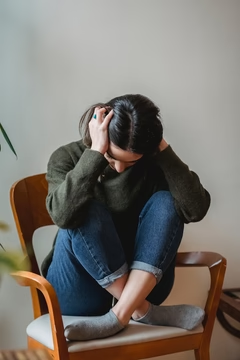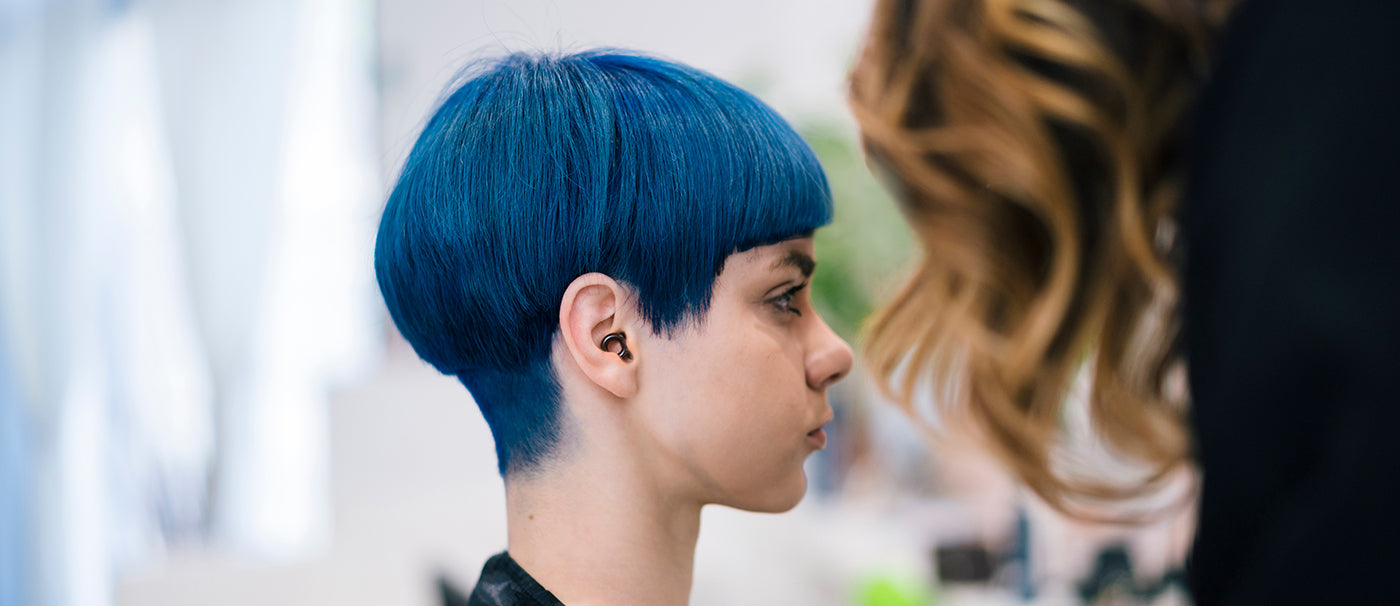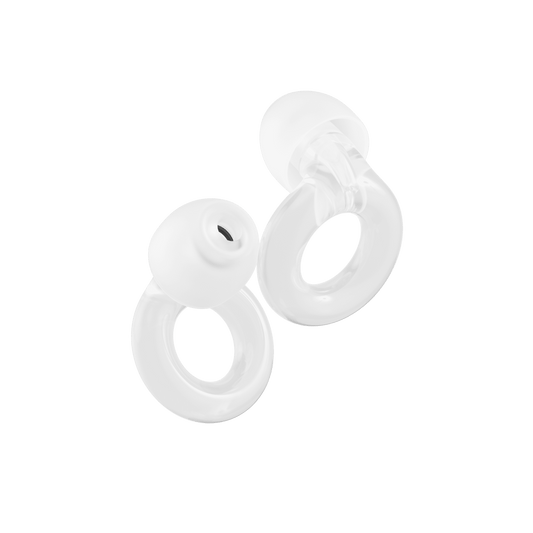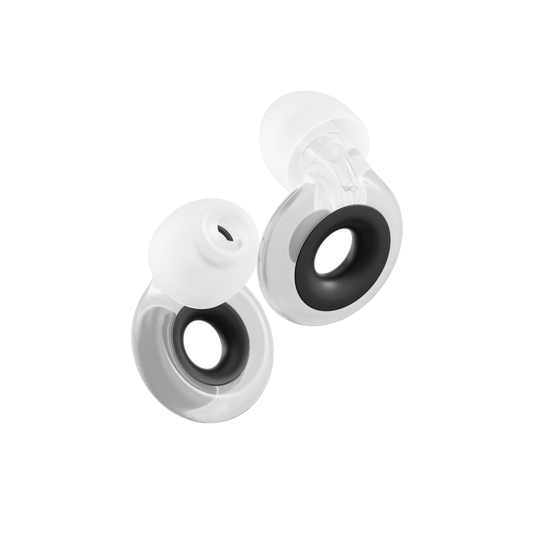Earplugs for autism
Autism and sensory overload often go hand-in-hand. And sometimes, that means the world can be overwhelming for people with autism.
Everyone experiences the world differently, and every autistic person will have different sensory triggers. But one of the most common is noise sensitivity. In some cases, that can be wonderful – it can mean that you’re more in tune with the subtle details of sounds, could mean that you make a fantastic musician, or that you have a unique perspective on the world.
But sometimes, it can make navigating a world full of sounds more challenging. It can lead to stress, anxiety and overwhelm – and, if you’re keen to seek out quiet environments, it could be socially isolating, too.
But it doesn’t have to be that way. Adding autism earplugs to your sensory toolkit can be a great way to take the edge off and reduce the overwhelm in your everyday life.
What are the benefits of noise reducing earplugs for autism?
Crowded supermarkets or busy bars. Social gatherings where there’s loud music and lots of conversations all happening at once. Unexpected noises like fireworks, applause, or a balloon suddenly popping.
Whatever your particular auditory triggers, they can be difficult to deal with. Because autistic people process sensory stimuli differently, it can mean that they have heightened reactions to sounds that might not be bothersome for other people.
That can mean that sounds are overwhelming, which can lead to stress, anxiety or meltdowns. And when there’s lots of background noise, it can be difficult to zone in on any particular one – meaning that it can be challenging to concentrate on conversations, studying, or whatever else you need to focus on.
Wearing earplugs for autism can help to reduce the overwhelm by lowering the level and intensity of sounds that reach your eardrums – meaning you can create a more comfortable environment for yourself. When there are fewer sounds competing for your attention, you’re less likely to feel overwhelmed which can, in turn, help to reduce your levels of stress and anxiety.
And when you reduce the amount of background noise, it means your brain doesn’t have to try to figure out which ones are important. Instead, you can focus on the task or activity at hand without being overwhelmed by all the other noises around you.
Our earplugs for autism
Why Loop Earplugs are the best choice for people with autism
Traditional foam earplugs and ear defenders block out noise. That can be great in some situations – but not when you want to stay engaged with the world around you.
Loop Engage earplugs are designed to help you stay connected, by filtering sound waves instead of blocking them out. They’re made to limit the occlusion effect, which is that echoey, head-underwater feeling that you sometimes get with earplugs, so that your own voice sounds more natural when speaking. And they offer up to 16 decibels (SNR) and 10 decibels (NRR) of noise reduction, to reduce sounds to a more tolerable level.
Noise reduction earplugs are a great self-regulation tool for people with autism. They put you in control of your own environments, and because our earplugs come in a handy Carry Case, they’re easy to pop in your pocket or bag, ready to pull out whenever you need a helping hand to stay present, calm and focused.
Earplugs to turn down the volume
Noise sensitivity is challenging. For many people it interferes with work, relationships and socializing. Thanks to Loop, it’s increasingly easy to manage it.
Gone are the days of giant headphones that block and muffle sound – we’ve been busy designing the best noise-reducing earplugs for autism. Check out Loop Experience and Loop Engage. Here’s the lowdown:
Collapsible content
Loop Experience
For extra protection, these autism earplugs reduce noise by up to 18 decibels. They feature an innovative acoustic channel that works to filter outside noise – making them the ideal noise-canceling earplugs for autism. But don’t worry – you’ll still hear all the important stuff and sound quality will never suffer.
Loop Engage
Loop Engage are designed with conversation in mind. They offer up to 16 decibels of coverage and are designed to limit the ‘occlusion effect.’ Which is that echoey, head-underwater feeling you get with most earplugs. They’re the perfect noise-reducing earplugs for autism as they reduce sensory overload without impacting your ability to chat and connect. Allowing you to remain present, calm, and focused.
Both of them
° Offer maximum comfort, fitting snugly into all types of ears
° Come in 4 unique colors
° Include a handy Carry Case
° Are recommended for anyone over the age of 12 – so they’re ideal for older children too.


Live life at your volume
Restore some calm to the chaos of everyday life. Take the edge off the noise of the world with our earplugs, perfect for autistic users managing sensory overload.
100 days free return
Ready to give them a try? We think you’ll love them, but if not, you’ve got 100 days to return them for free.
Frequently asked questions
How can earplugs help individuals with autism?
Earplugs reduce the volume of external sounds, which means that you’re less likely to be overwhelmed by noise. Many people with autism are sensitive to sound, so by reducing the volume of the sounds, you’re more likely to feel calm and in control.
Do earplugs for autism completely block out all sounds?
Traditional foam earplugs block out noise, but earplugs like Loop Engage are designed to filter out sound waves. That means you can still hear everything that’s going on around you – just at a lower volume.
Can earplugs be used in combination with other sensory tools?
Earplugs are a great way of reducing noise and helping to self-regulate, but there are plenty of other sensory tools out there – and it’s a great idea to use a combination of strategies that work for you.
How effective are earplugs reducing sensory overload and promoting calmness?
Earplugs can be a great way to reduce sensory overload by reducing the intensity and volume of external sounds – which can, in turn, help you to feel calmer and more in control.
Related blogposts

Addressing noise disturbances: tips & laws
Learn how to address noise disturbances with practical tips and understand the laws that protect your peace. Essentia...

Autistic Traits & Sound Sensitivity - What are the traits of autism, and how ...
More and more people are being diagnosed with autism: about one in 160 children worldwide has an autism spectrum diso...





















